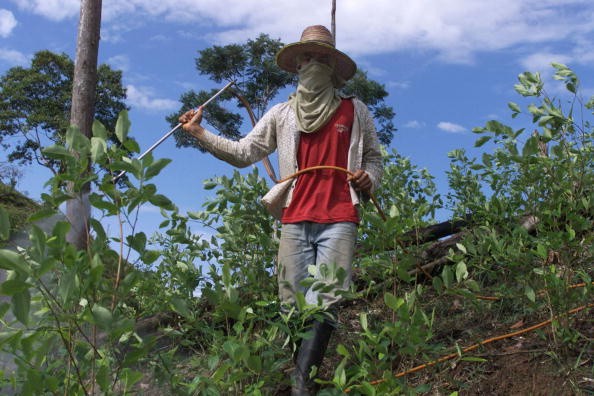Colombia is Considering Legalizing, Subsidizing Massive Cocaine Industry
Colombian Senator Iván Marulanda said the state should start considering ways to legalize cocaine and allow distribution to users as his proposed bill to do so moves along Colombia's congress.
The proposal to legalize cocaine would mean the drug can be distributed throughout Colombia for public health use, not recreational purposes, said Mix Mag.
As he spoke with VICE World News, Marulanda said the plan was to legalize cocaine distribution by letting the government "buy the entirety of Colombia's coca harvest."
Colombia started following the footsteps of several American legislations that legalized marijuana and legal steps in other countries.
Under the bill, the massive cocaine industry of Colombia will become a legal business that can help people with pain relief.

"The Colombian state would distribute it to users under a public health program, effectively through physicians who would evaluate if a person is apt for taking cocaine for their pain," Marulanda said.
We Are Mitu said the proposal to legalize cocaine was a "surprising" move for the country since the country is known to have a "serious problem with cocaine trafficking and drug cartels."
According to We Are Mitu, about 90% of the world's cocaine supply comes from Colombia.
A "War on Drugs" started in the country decades ago, trying to criminalize the drug, but it hasn't seen concrete, good results.
This logic was the one followed by some lawmakers when they proposed that Colombia should just legalize cocaine instead.
Buying All of Colombia's Coca Costs Less Than Destroying It
With the amount cocaine involved in the country's massive industry, the government would face costs of about $680 million per year.
This is lower than the $1 billion cost that it could take to eradicate 200,000 farm families that depend on coca growing, reported VICE.
Under the proposal, the state will buy coca supplies at market prices.
The government hopes that with that intervention, more families that depend on the industry will move to the legal sphere where they will no longer be considered criminals by the state.
It follows a move in Bolivia where hundreds of thousands of farmers were also placed into the legal industry.
This reduces chances of such families being displaced and deforesting new areas to replant their coca as they hide from authorities.
Next, the state is expecting a decrease in annual deforestation, 25% of which comes from coca-growing families.
This helps preserve the state's ecosystem and avoids collateral damage from the immense industry.
Colombia to Supply Coca Leaves to Indigenous Communities
Some indigenous communities also have an ancestral relationship with the coca plant as they have taken care of it for hundreds of years.
These communities can also create "foods, baking flour, medicinal products and drinks like tea from the raw materials.
But they haven't had the chance to develop because the raw product ended up being stigmatized and was seen as illegal.
Legalizing cocaine would also help these communities develop and make use of the plant's significant levels of calcium.
Marulanda was looking forward to the legalization of the industry and while he thinks the plan was "ambitious," he believed it could change things for the better in Colombia.
Subscribe to Latin Post!
Sign up for our free newsletter for the Latest coverage!
© 2026 Latin Post. All rights reserved. Do not reproduce without permission.















